Baking soda serves more purposes than just helping pastries rise. It has numerous household applications and might provide relief for certain health issues, including mouth ulcers.
Also known as sodium bicarbonate or bicarbonate of soda, baking soda is a common baking staple. It helps produce light, fluffy textures in foods such as bread, cakes, muffins, and cookies.
This happens because it has leavening effects: it reacts with an acid like vinegar or lemon juice to release carbon dioxide, which causes dough to rise.
Beyond the kitchen, baking soda offers a wide range of uses around the home.
Below are 22 possible household and health uses for baking soda.

Household uses
Baking soda is a versatile, multipurpose item useful for tasks from cleaning surfaces to aiding oral hygiene. Here’s an extensive rundown of household uses.
1. Mouthwash
Mouthwash can reach parts of the mouth that brushing misses, including between teeth, gums, and the tongue.
Baking soda can be used as a mouth rinse because it may help freshen breath and has some antibacterial and antimicrobial characteristics.
Although a 2017 study reported that baking soda mouthwash didn’t significantly cut oral bacteria counts, it did raise saliva pH, which can hinder bacterial growth.
To prepare a baking soda mouthwash, dissolve 1/2 teaspoon (2 grams) of baking soda into half a glass (120 mL) of warm water and swish as you would with regular mouthwash.
2. Teeth whitener
Baking soda is a widely used home remedy for brightening teeth.
Studies indicate that toothpaste containing baking soda may be more effective at whitening teeth and removing plaque than toothpaste that lacks it.
This effect likely results from baking soda’s mild abrasiveness, which can loosen stain molecules, along with its antibacterial and antimicrobial actions that may reduce harmful bacteria.
3. Deodorant
Contrary to popular belief, sweat itself has no smell.
Odor appears when bacteria break down sweat in the armpits, producing acidic byproducts that cause the scent.
Baking soda is a frequent component in deodorants because it helps neutralize odors. Some people use it as a natural deodorant to reduce sweat scent by making smells less acidic, although evidence for effectiveness is limited.
Try applying baking soda directly to your underarms or blend it with coconut oil, shea butter, or cornstarch to make a DIY deodorant.
4. Fridge odor neutralizer
Baking soda may help refresh a foul-smelling refrigerator by neutralizing offensive odors. While it doesn’t merely mask smells, research from 2015 indicates it can remove odor particles, aiding odor control.
To use it, place a cup of baking soda at the back of your fridge.
5. Air freshener
Many commercial air fresheners simply cover up unpleasant smells with fragrances rather than removing them.
They may also list numerous chemical ingredients that can be a problem for people with sensitivities.
Baking soda is a potentially safer alternative because it lacks industrial chemicals and neutralizes odor particles.
To make a baking soda air freshener you’ll need:
- a small jar
- 1/3 cup (74 g) baking soda
- 10–15 drops of essential oil of your choice
- a piece of cloth or paper
- a string or ribbon
Combine the baking soda and essential oil in the jar, cover with the cloth or paper, secure with the string, and place it where needed. Shake the jar when the fragrance fades.
6. Whitening agent for laundry
Baking soda is an affordable method to brighten and clean laundry.
As an alkali — a soluble salt — it can assist in removing dirt and stains by interacting with acidic components of stains when dissolved.
Add 1/2 cup (110 g) of baking soda to your usual amount of laundry detergent. It also softens water, so you may be able to reduce detergent use.
7. Kitchen cleaner
Baking soda’s flexibility makes it an excellent kitchen cleaner. Combining it with an acid like lemon juice or vinegar can also help control microbes such as mold or bacteria.
Create a paste by mixing equal parts baking soda and lemon juice with a little water. Apply with a sponge or cloth and scrub thoroughly.
Try baking soda on these kitchen surfaces and items:
- ovens
- stained coffee mugs
- discolored marble
- grease stains
- kitchen tiles
- clogged drains
- tarnished silver
- microwaves
- countertops
8. Garbage odor eliminator
Trash bags can emit strong odors due to decomposing waste, and these smells can permeate your kitchen and home.
Baking soda helps neutralize acidic odor molecules and can reduce trash can smells.
A 2015 study found that sprinkling baking soda in the bottom of waste bins may cut garbage odor by around 70%.
9. Carpet stain remover
A mixture of baking soda and vinegar can aid in lifting carpet stains.
Baking soda combined with vinegar forms carbonic acid and produces fizzing that may help break down stubborn stains.
To clean carpet stains with baking soda and vinegar:
- Sprinkle a thin layer of baking soda over the stain.
- Fill a spray bottle with equal parts vinegar and water and spray the area.
- Allow up to 1 hour or until the area dries.
- Scrub the baking soda loose with a brush and vacuum up the residue.
- If residue remains, wipe with a damp cloth; the stain should be gone.
10. Multipurpose bathroom cleaner
Many prefer natural, budget-friendly alternatives to commercial bathroom cleaners.
Baking soda is a common cleaning compound that can help sanitize many bathroom surfaces, though it might be less potent than some store-bought cleaners.
Surfaces you can clean with baking soda include:
- bathroom tiles
- toilets
- showers
- bathtubs
- bathroom sinks
Make a paste of baking soda and a little water. Rub it onto the surface with a sponge or cloth, then rinse or wipe off after 15–20 minutes with a damp cloth.
11. Pesticide remover for fruits and veggies
Pesticide residues on produce are a common concern. While peeling fruit removes pesticides, it also discards valuable nutrients like fiber, vitamins, and minerals in the skin.
Some studies suggest a baking soda wash effectively removes pesticides from fruits and vegetables without peeling them.
Research found that soaking apples in a baking soda and water solution for 12–15 minutes removed nearly all surface pesticide residues.
Note that this method doesn’t remove pesticides that have absorbed into the flesh, and more research is needed for other produce types.
12. Silverware polisher
Baking soda can replace commercial silver polishes with a few extra items:
- an aluminum baking pan or a dish lined with aluminum foil
- 1 cup (240 mL) boiling water
- 1 tablespoon (14 g) baking soda
- 1/2 cup (120 mL) white vinegar
Add baking soda to the pan, pour in the vinegar slowly, then add the boiling water and place the silver inside.
Tarnish should start to lift almost immediately. Most pieces can be removed within 30 seconds; heavily tarnished items may need up to a minute.
The process relies on a chemical reaction between the silver, aluminum, and baking soda that transfers the tarnish onto the aluminum, sometimes leaving pale residue in the pan.
13. Scorched pot cleaner
Burning the bottom of a pot is an easy kitchen mishap.
To restore a scorched pot, sprinkle a generous layer of baking soda over the burnt areas and add enough water to cover them. Bring the pot to a boil, then empty it as usual.
If residue remains, use a scouring pad with a bit of dish soap to gently scrub it away.
14. Oil and grease fire extinguisher
Some types of fire extinguishers use baking soda. These dry chemical extinguishers can put out oil, grease, and electrical fires because baking soda releases carbon dioxide under heat, which helps smother flames.
You can use baking soda to put out small grease or oil fires, but it’s not effective for larger house fires, which involve more oxygen and overwhelm the effect of baking soda.
15. Homemade weed killer
Weeds often develop deep roots and can be tough to remove without chemical herbicides.
Some people use baking soda as a low-cost alternative because its sodium content can create a hostile environment for unwanted plants.
Sprinkle baking soda into cracks in sidewalks or driveways to deter weeds. Avoid using it in garden beds, where it could harm desired plants.
16. Shoe deodorizer
Baking soda can help refresh smelly shoes by neutralizing unpleasant odors.
Place 2 tablespoons (9 g) of baking soda into two small cloths or cheesecloth pouches, tie them off, and put one pouch in each shoe. Remove them when you’re ready to wear the shoes.
Health benefits
Besides household uses, baking soda may offer several health-related benefits.
17. May help treat heartburn
Heartburn, or acid reflux, causes a burning sensation in the upper stomach area that can reach the throat.
It happens when stomach acid flows into the esophagus, the tube linking the stomach and mouth.
Baking soda dissolved in water may help alleviate heartburn by neutralizing stomach acid. Mix 1 teaspoon (5 g) of baking soda in a glass of cold water and sip slowly.
However, excessive intake can cause side effects such as:
- nausea
- vomiting
- headache
- muscle pain
- restlessness
Long-term use may lead to metabolic alkalosis — a dangerously high blood alkalinity — and heart complications.
Consult a physician before using baking soda for heartburn, particularly if you have existing health issues.
»More on this:Baking soda for acid reflux18. May soothe canker sores
Canker sores are small, painful mouth ulcers that occur inside the mouth and are not contagious like cold sores.
Although more evidence is necessary, some earlier research suggests that rinsing with a baking soda solution can reduce pain from canker sores.
Make a rinse by adding 1/2 teaspoon (2 g) of baking soda to half a glass (120 mL) of warm water, and rinse once daily until the sore heals.
»More on this:How to treat canker sores19. May improve exercise performance
Athletes sometimes use baking soda, or sodium bicarbonate, as a supplement.
Some research indicates it can help you sustain peak performance longer, particularly during high-intensity, anaerobic exercise and sprinting.
Sodium bicarbonate supplements may be effective at doses around 0.13 g per pound (0.3 g per kg) of body weight.
Always consult a healthcare professional before taking supplements and follow label instructions.
»More on this:Baking soda for exercise performance20. May relieve itchy skin and sunburns
A baking soda bath can help calm dry, itchy, or scaly skin from bug bites, sunburn, or conditions like psoriasis.
Add 1 to 2 cups (220–440 g) of baking soda to a lukewarm bath and soak the affected areas thoroughly.
For targeted relief, make a paste of baking soda and water and apply a thick layer to the affected spot.
»More on this:Baking soda and skin care21. May slow the progression of chronic kidney disease
Your kidneys remove waste and extra fluids while maintaining mineral balance, including potassium, sodium, and calcium.
Chronic kidney disease (CKD) involves gradual loss of kidney function.
Some evidence suggests sodium bicarbonate supplements may help improve kidney function and slow CKD progression, although more research is needed.
If you have kidney issues, consult your doctor before ingesting baking soda.
22. May improve certain cancer treatments
Cancer is a leading cause of death in the United States.
Treatments like chemotherapy aim to halt or slow the growth of rapidly dividing cancer cells.
Some research suggests baking soda might enhance chemotherapy effectiveness by reducing acidity in the tumor environment.
However, available evidence is limited to animal and laboratory studies, and human trials are needed. If you’re undergoing cancer therapy, discuss any interest in using baking soda with your oncologist before adding it to your regimen.
The bottom line
Baking soda is a flexible household staple with uses far beyond baking.
It can neutralize odors and clean hard-to-reach or stubborn areas like ovens, microwaves, and grout.
Additionally, baking soda may offer health benefits such as easing heartburn, enhancing exercise performance, and whitening teeth, though you should consult healthcare professionals for medical uses.

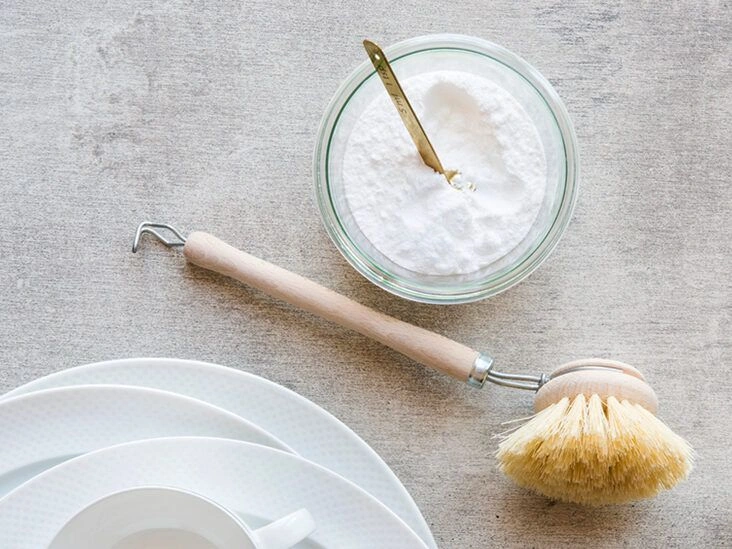
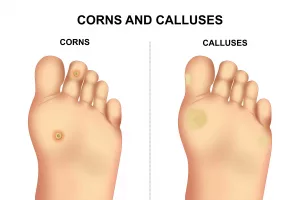
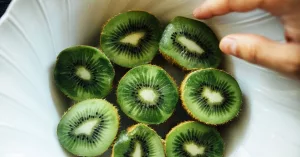

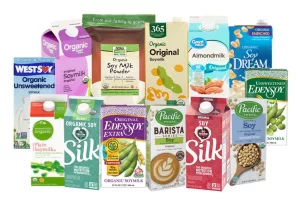

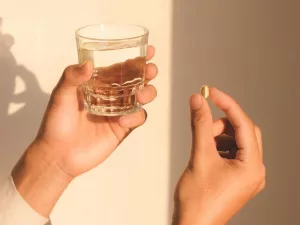
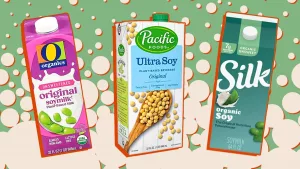




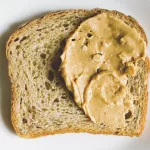
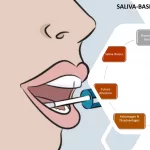




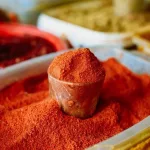
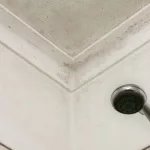



Leave a Reply
You must be logged in to post a comment.